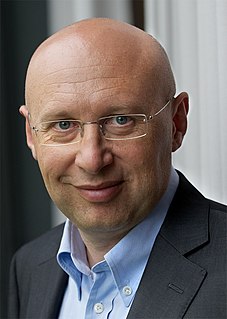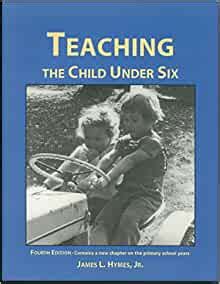A Quote by Jerome Bruner
The young child approaching a new subject or anew problem is like the scientist operating at the edge of his chosen field.
Related Quotes
Freud pointed out, in his Problem of Lay Analysis, that it is extremely unlikely that a young man who would throw the best years of his life into the cloistered drudgery of getting an M.D. degree, could possibly make a good psychoanalyst; so he preferred to look for young analysts among the writers, the lawyers, the mothers of families, those who had chosen human contact. But in their economic wisdom, the Psychoanalytic Institute of Vienna (and New York) overruled him.
I think that's something a scientist can do because a scientist works at a border, at the edge of science, at the edge of knowledge, and so there's a lot of fun of reaching out and thinking about things that other people didn't think about. And so it has a kind of exploratory notion, kind of adventurous part in it.
Play for young children is not recreation activity, It is not leisure-time activity nor escape activity. Play is thinking time for young children. It is language time. Problem-solving time. It is memory time, planning time, investigating time. It is organization-of-ideas time, when the young child uses his mind and body and his social skills and all his powers in response to the stimuli he has met.
But somewhere, a child surprises himself with his endurance, his quick mind, his dexterous hands. Somewhere a child accomplishes with ease that which usually takes great effort. And this child, who has been blind to his past, but his heart still beats for the thrill of the race, this child's soul awakens. And a new champion walks among us.
I believe that our own experience instructs us that the secret of Education lies in respecting the pupil. It is not for you to choose what he shall know, what he shall do. It is chosen and foreordained, and he only holds the key to his own secret. By your tampering and thwarting and too much governing he may be hindered from his end and kept out of his own. Respect the child. Wait and see the new product of Nature. Nature loves analogies, but not repetitions. Respect the child. Be not too much his parent. Trespass not on his solitude.
After the birth of printing books became widespread. Hence everyone throughout Europe devoted himself to the study of literature... Every year, especially since 1563, the number of writings published in every field is greater than all those produced in the past thousand years. Through them there has today been created a new theology and a new jurisprudence; the Paracelsians have created medicine anew and the Copernicans have created astronomy anew. I really believe that at last the world is alive, indeed seething, and that the stimuli of these remarkable conjunctions did not act in vain.
The scientist is not responsible for the laws of nature. It is his job to find out how these laws operate. It is the scientist's job to find the ways in which these laws can serve the human will. However, it is not the scientist's job to determine whether a hydrogen bomb should be constructed, whether it should be used, or how it should be used. This responsibility rests with the American people and with their chosen representatives.





































